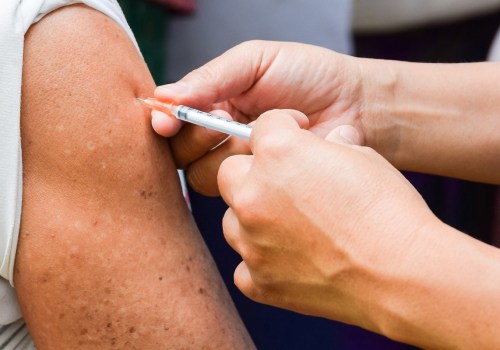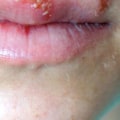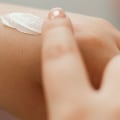Do you suffer from herpes? If so, you're not alone. Herpes is a common virus that affects millions of people around the world. But the good news is that there are many topical treatments available to help alleviate the discomfort and reduce the risk of outbreaks. In this article, we'll provide an overview of the most effective topical treatments for herpes relief. Topical treatments are medications that are applied directly to the skin.
They are typically formulated as creams, ointments, gels, or solutions. These treatments can help reduce pain, itching, and burning associated with herpes, as well as reduce the risk of transmission. In addition, some topical treatments can also reduce inflammation and speed up healing. It's important to note that while topical treatments are effective at relieving symptoms and reducing outbreaks, they don't cure herpes. However, they can help make living with the virus easier.
The first step in treating herpes is to identify which type of herpes you have.
There are two main types: oral herpes and genital herpes.Both types are caused by the herpes simplex virus (HSV). Depending on the type of herpes you have, different topical treatments may be recommended. Common topical treatments for oral herpes include antiviral creams, ointments, and gels. These medications can reduce inflammation, relieve itching, and promote healing.
They are usually applied directly to the affected area. Popular brands include Abreva, Zovirax, and Releev.
For genital herpes, there are a few different types of topical treatments available.
Antiviral creams, ointments, or gels can be used to reduce inflammation and relieve itching. Other popular treatments include hydrocortisone creams or lotions to reduce inflammation.For women, some doctors recommend using a lubricant during intercourse to reduce friction and irritation.
In addition to topical treatments, there are other ways to manage herpes symptoms.
Keeping the affected area clean and dry can help reduce itching and irritation. Applying cold compresses can also provide relief from pain and itching. It's important to practice safe sex by using condoms or dental dams to reduce the risk of spreading the virus.Finally, it's important to talk to your doctor about any concerns you may have about your condition or any medications you're taking. Your doctor can help you find the best treatment plan for your individual needs.
Managing Herpes Symptoms
In addition to topical treatments, there are several other ways to manage herpes symptoms and find relief. Keeping the affected area clean and dry is essential for managing flare-ups and preventing the spread of the virus. Applying cold compresses to the affected area can help to reduce pain and itching. Practicing safe sex can also help to reduce the risk of transmitting the virus to a partner. It is important to note that these treatments are not a cure for herpes, but can help to reduce the severity of symptoms and make it easier to cope with an outbreak.Some people may find that lifestyle changes, such as avoiding triggers, can also reduce the frequency and severity of outbreaks.
Types of Topical Treatments
When it comes to treating herpes, there are a variety of topical treatments available. These treatments come in the form of creams, ointments, gels, lubricants, and hydrocortisone creams/lotions. These products can be used to reduce inflammation, relieve itching, and promote healing. Antiviral creams are one of the most popular types of topical treatments for herpes. These creams are designed to slow the growth of the virus, reduce the severity of outbreaks, and help the sores heal faster.They may also help reduce the risk of spreading the infection. Ointments and gels are also commonly used to treat herpes. These products are designed to reduce itching, burning, and pain associated with outbreaks. They can also help soothe and protect the affected area. Lubricants can also be used to treat herpes. These products provide relief from itching and burning caused by friction between clothing and skin.
They also help protect the skin from further irritation. Hydrocortisone creams and lotions are often recommended for people who suffer from frequent outbreaks or have particularly severe symptoms. These medications can help reduce inflammation and provide relief from itching and discomfort. No matter which type of topical treatment you choose, it is important to follow your doctor’s instructions. Always read the label carefully and use the product as directed. Topical treatments can be an effective way to manage the symptoms of herpes. They can reduce inflammation, relieve itching, and promote healing, helping you achieve relief and a healthier life.
It's important to talk to your doctor about any concerns you may have about your condition or any medications you're taking. With the right treatment plan, you can find the relief you need.






